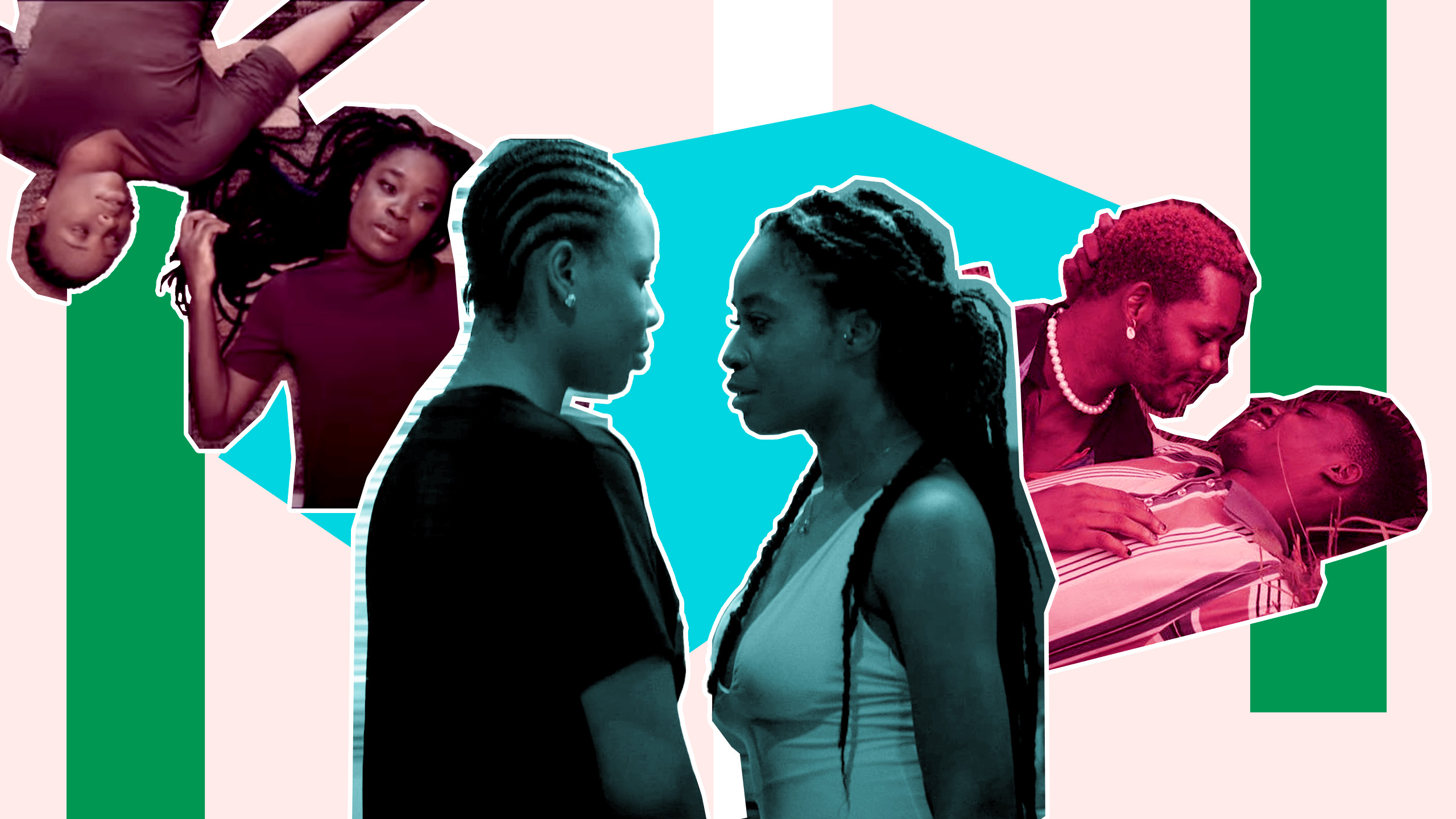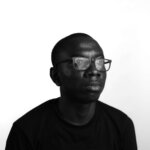In the 2003 feature film Emotional Crack, one of the first Nigerian films to depict a queer relationship, a woman in an abusive marriage with a man finds comfort and solace in the arms of another woman. When her husband learns of her affair, he throws her out of his home. She eventually returns to him after ending her affair, but her ex-lover attacks her out of anger. The film implicitly suggests that homosexuality is a result of domestic violence and leads to violence itself.
“When a film is telling a story about human lives—about people’s existence—approach to the story matters. They need to tell the story in a way that dignifies their humanity. And I don’t think that [Emotional Crack] did that,” says lesbian Nigerian filmmaker Uyaiedu Ikpe-Etim.
Ikpe-Etim, whose 2020 short film Ìfé concerns two women who fall in love over the course of a three-day date, is part of a new generation of young independent filmmakers whose voices will not be stifled by the country’s anti-gay laws.
Traditionally, the Nigerian film industry, known as Nollywood, is imbued with very conservative notions of family. Marriage is sacred, and any perceived attack must be met with vigour, and even divine vengeance. Homosexuality is still illegal in the country of over 160 million people. In 2014, the Nigerian government passed into law the Same Sex Marriage (Prohibition) Act, which forbids cohabitation between same-sex partners as well as public displays of “amorous” affection between persons of the same sex. Sanctions are up to 14 years in prison.
Other Nollywood films, like Women Affair (2003) and Busted (2017), effectively debase homosexuality by portraying gay people as predatory groomers. But the worst depiction was in the 2010 feature Men in Love, where rape is depicted as a gay conversion process. By the end of the film, homosexuality is portrayed as an evil spirit only a Christian pastor can cast out.
In recent years, Nollywood has shifted from its Christian dogmatism to exploring stories that are made mainly for entertainment. At best, these newer films just avoid discussing homosexuality altogether. For example, the sexual education TV show MTV Shuga included queer representation when produced in Kenya and South Africa, but the Nigerian edition repeatedly avoided mentioning it through its four seasons.
While Nollywood continues to villanize homosexuality, independent LGBTQ+ activists and advocacy groups have filled in the gap in the little ways they can. Their films and shows like Hell and High Water and We Don’t Live Here Anymore, created by the nonprofit The Initiative for Equal Rights (TIERS), are different from those of mainstream Nollywood as they attempt to be empathetic to the lived experiences of queer and trans communities. Two recent films by openly queer Nigerians, Ikpe-Etim’s Ìfé (2020) and non-binary filmmaker Wapah Ezeigwe’s Country Love, are even bolder in their narrative of what it means to be queer and in love in a place where it is taboo.
Ìfé is a unique study on how lesbians navigate romantic relationships in a place like Nigeria, where homosexuality is outlawed.
Ezeigwe’s Country Love is set in the countryside of Nsukka, a quiet town in Southern Nigeria, and concerns a femme young man, Kambili, who returns home after 15 years for his childhood love, only to find that things are no longer as they were.
Both films represent a shift from Nollywood’s queerphobic, agenda-driven stories to truthful and authentic stories about queer Nigerians by queer Nigerians. I spoke to both Ezeigwe and Ikpe-Etim to hear their thoughts on Nollywood’s negative portrayal of queer people and the future of queer filmmaking in Nigeria.
What inspired your film?
Uyaiedu Ikpe-Etim: Ìfé was really born out of the need to tell a story that I had not seen. I read something: if you want to read a book that hasn’t been written, then write that book; and for me, that was it with Ìfé. I wanted to see women loving other women in Nigerian settings, in Nigerian films, in Nigerian spaces. Because we exist, right? I wanted to see that, but there was no one telling that story. And because I am a storyteller, and stories matter to me, I decided to tell that story. So, really, the short answer is Ìfé was born out of the need for representation for women who love women.
Wapah Ezeigwe: I am a passionate filmmaker who views the world with open eyes. Although my background is in literature, I have found film to be the medium for me to speak boldly and distinctively to the world; to tell stories about my humanity and any humanity. And when I say humanity, I gravitate toward those who are on the edge of existence. The reality is that we live in a very diverse world, and our experiences as humans are very eclectic. It is saddening when we overlook the stories of certain people due to religious or cultural sentiments. The truth is that all stories matter. And to build an inclusive world, there must be representation. What I am saying is that I am not just motivated by passion. I want cinema to be diverse, to be more inclusive, and I will do my bit to see to that. I believe cinema should be a universal language and a safe space where all human experiences can be reflected.
When I decided to make Country Love, I was inspired by the femme and the queer identity. I wanted a story that must resonate first with who I am and my ideologies. This is because I believe stories should be truthful and authentic. I wanted to make a film that would represent people like me, and that was the inspiration for Country Love.
What do you think accounts for the paucity of queer representation in Nollywood?
Ezeigwe: I think the film industry in Nigeria is still not open to making queer films. There are very few films from Nigeria that have represented queer people in a way that is authentic. The issue is that Nigeria is queerphobic and unwelcoming of stories that truthfully represent queer people. It takes truth and courage to tell a queer story in a queerphobic country, and this is one of the reasons we barely see queer representation in African cinema.
Do you plan to make more queer films?
Ikpe-Etim: More than a filmmaker, I like to call myself a storyteller, so you can expect more stories about queer people from me in various media forms, from short stories to feature films to documentaries.
Ezeigwe: Of course! I am a filmmaker—it is a career for me! I am currently writing the third draft of my second short film, so, yes, there will be more films from me, more films that will centre queer characters. because I am so drawn to making queer-centric films; it’s a strong part of my artistic identity. Just like the American filmmaker Spike Lee would always centre and humanize Black identity, so will I centre and always humanize the queer identity.


 Why you can trust Xtra
Why you can trust Xtra


